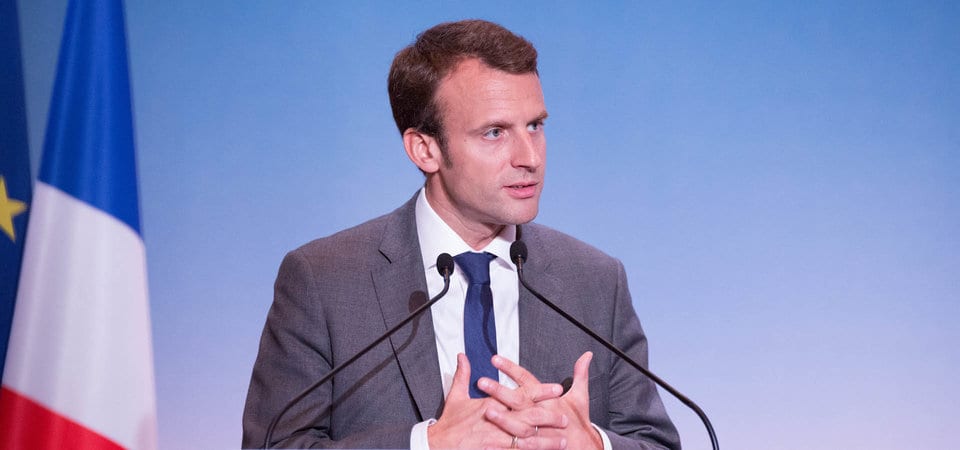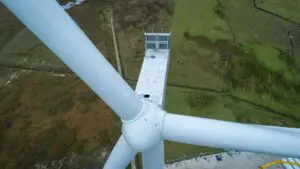France’s new President Emmanuel Macron has appointed his cabinet – to great acclaim. The direction of the country’s energy transition remains unclear, however. Craig Morris investigates (and secretly hopes for a Sixth Republic).

Macron, the outsider, has put together a group of ministers that reflect his wish to be inclusive. There is something for everyone: new faces and old, left and right, politically established and newcomers.
One main concern after his election was whether he would be able to bring together support from the political apparatus as an outsider. His cabinet is an obvious attempt to form an umbrella government across party lines. Judging from the initial media reactions, his choices have at least met with admiration.
The appointment that has drawn the most attention seems to be the new Minister of Ecology and Solidarity – the new name for the old Ministry of Energy and the Environment headed by Ségolène Royal. The new focus indicates that social issues will be a priority when decisions about the energy transition are made.
The man who will direct the new ministry is Nicolas Hulot, who made a name for himself decades ago with a TV series on the environment entitled (my translation) Ushuaïa – the Magazine of the Extreme. Here he is 19 years ago warning us not to fetishize pretty fish over ugly ones, but instead to respect the diversity of the oceans.
Hulot could thus perhaps best be presented to the global audience as the French equivalent of David Suzuki, the famous Canadian who used television to educate the public about nature and then went on to launch an eponymous foundation (here is Hulot’s; the website is only in French). He thus comes with impeccable credentials, and indeed previous politicians have courted him as well – but to no avail. But something about Macron must have convinced him that his time had come in politics.
It will be interesting to see what “solidarity” means in the energy transition. For instance, concerning the closing of Fessenheim, France’s oldest nuclear plant, Hulot is quoted: “We cannot impose a transition by force. The transition has to be done in an acceptable manner.” This approach is similar to the way Germany is handling its coal phaseout: slowly in order not to detrimentally impact coal communities.
Former President Hollande aimed to have France reliance on nuclear drop from 75 percent of power supply to 50 percent by 2025; that goal is still law. Macron is generally considered to be pro-nuclear, Hulot less so, but Macron has also commented skeptically on the cost of nuclear: “Nobody knows the total cost for nuclear energy. I was minister for industry and I could not tell you.”
It thus seems likely that an approach will be taken to pursue an energy transition towards renewables and away from nuclear, but possibly not at the speed that Hollande’s law specified. The slowdown would then be justified with solidarity. If so, this approach seems logical. As I have been saying for years, France has put most of its eggs in the nuclear basket and can hardly afford to shut very many reactors.
It’s not just communities with reactors that will be affected by a nuclear phaseout. Rather, last November EDF – the utility than runs all French reactors – bought up the effectively bankrupt Areva, the firm that built them. Both companies are largely state-owned. In January, the EU approved France’s plans to inject a whopping 4.5 billion euros in Areva to keep it afloat.
Whatever compromises he is forced to make, Hulot will easily bring more expertise to the table than the French have become accustomed to. Royal made a showcase out of the awful idea of 1,000 kilometers of solar roads (really terrible). And let’s remember, one last time as she leaves office, her challenge to Nicolas Sarkozy in 2007 to state how much nuclear power France has. They both got the answer wrong (Sarkozy was closer).
If nothing else, we can expect more expertise from Hulot. And if Macron’s recent video to American climate scientists is any indication (in great English with a charming French accent) we should brace ourselves. We’ll be facing five years of irresistible French leaders trying to find a middle ground in the rubble of their half-century-old Fifth Republic, whose party-based structures Macron’s success has called into question.
The Fifth Republic was founded at the end of colonialism in 1958 and based on the idea that a strong leader was needed. But France is now embedded in the EU, and strong parties are needed to for democratic debate to flourish – especially if Macron wants to make good on his word that French history in Algeria needs to be dealt with.
Craig Morris (@PPchef) is the lead author of Global Energy Transition. He is co-author of Energy Democracy, the first history of Germany’s Energiewende, and is currently Senior Fellow at the IASS.
Source: Energy c. Reproduced with permission.






